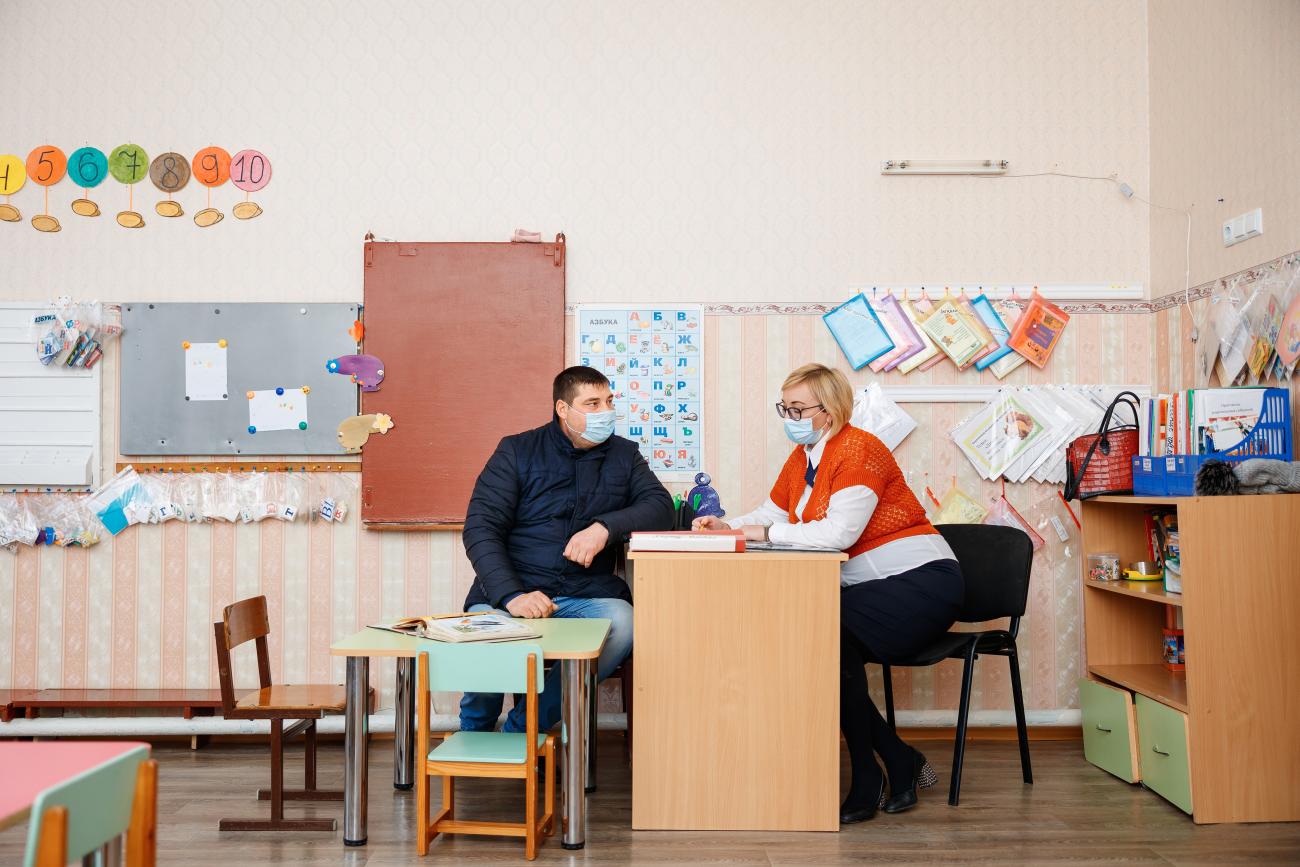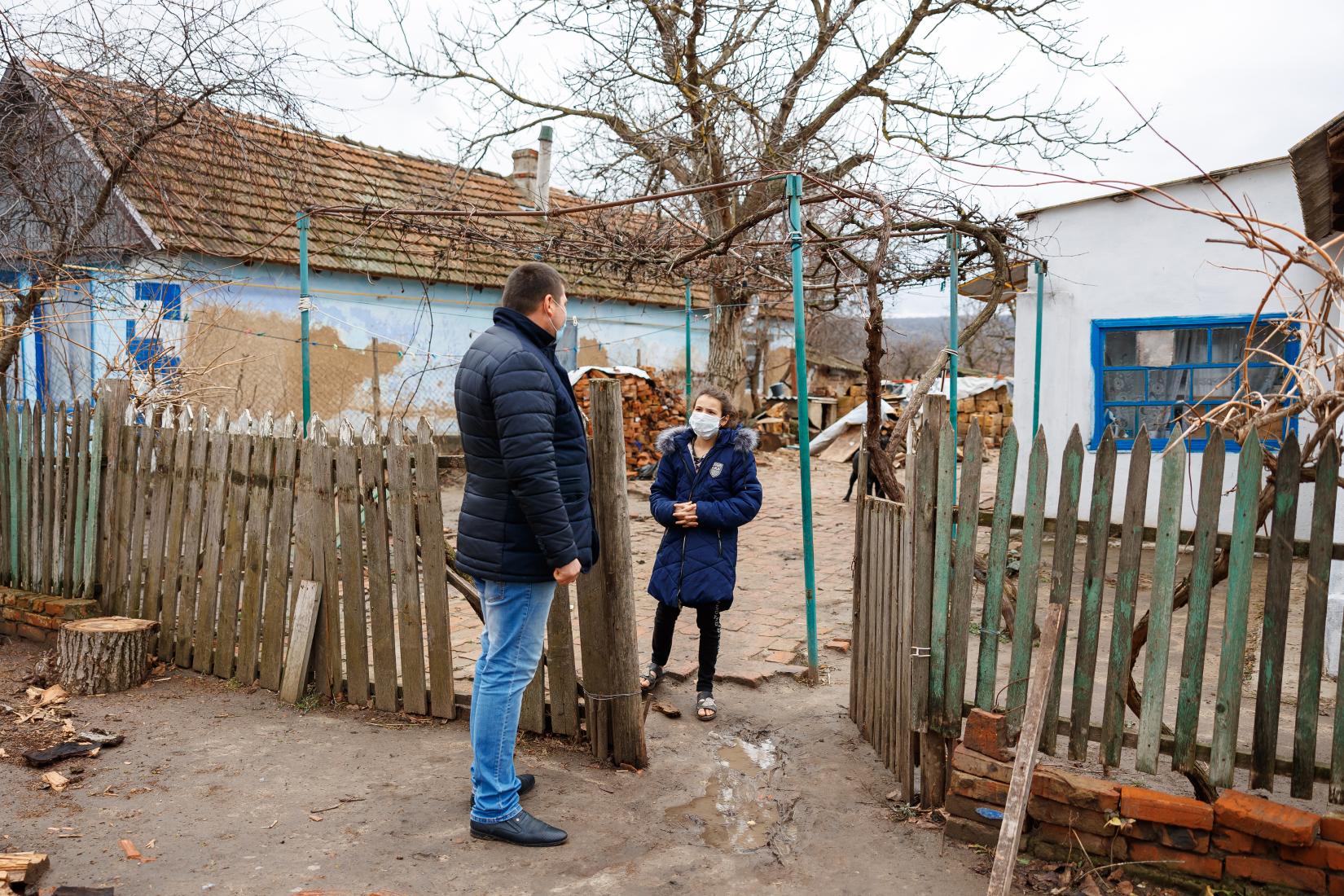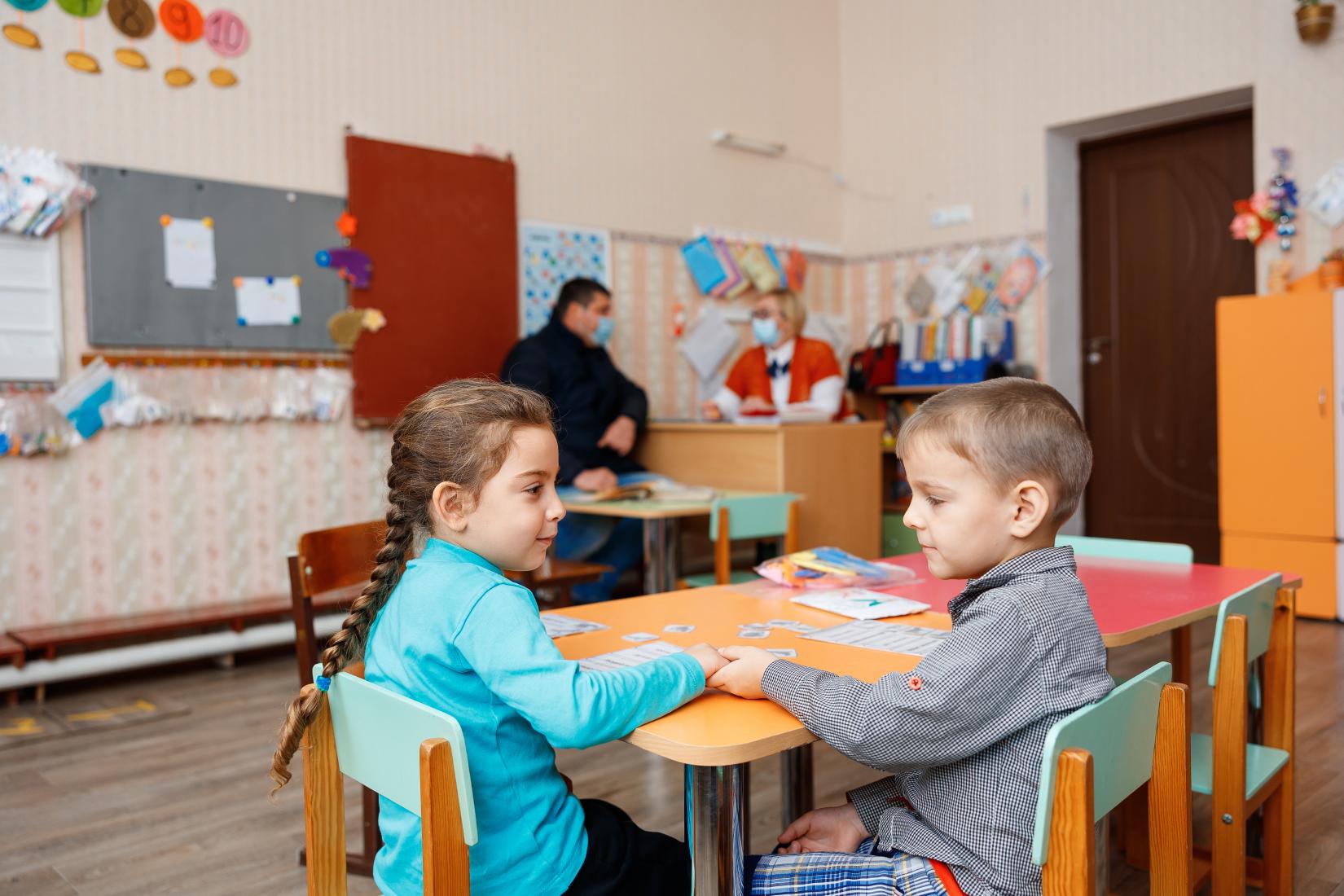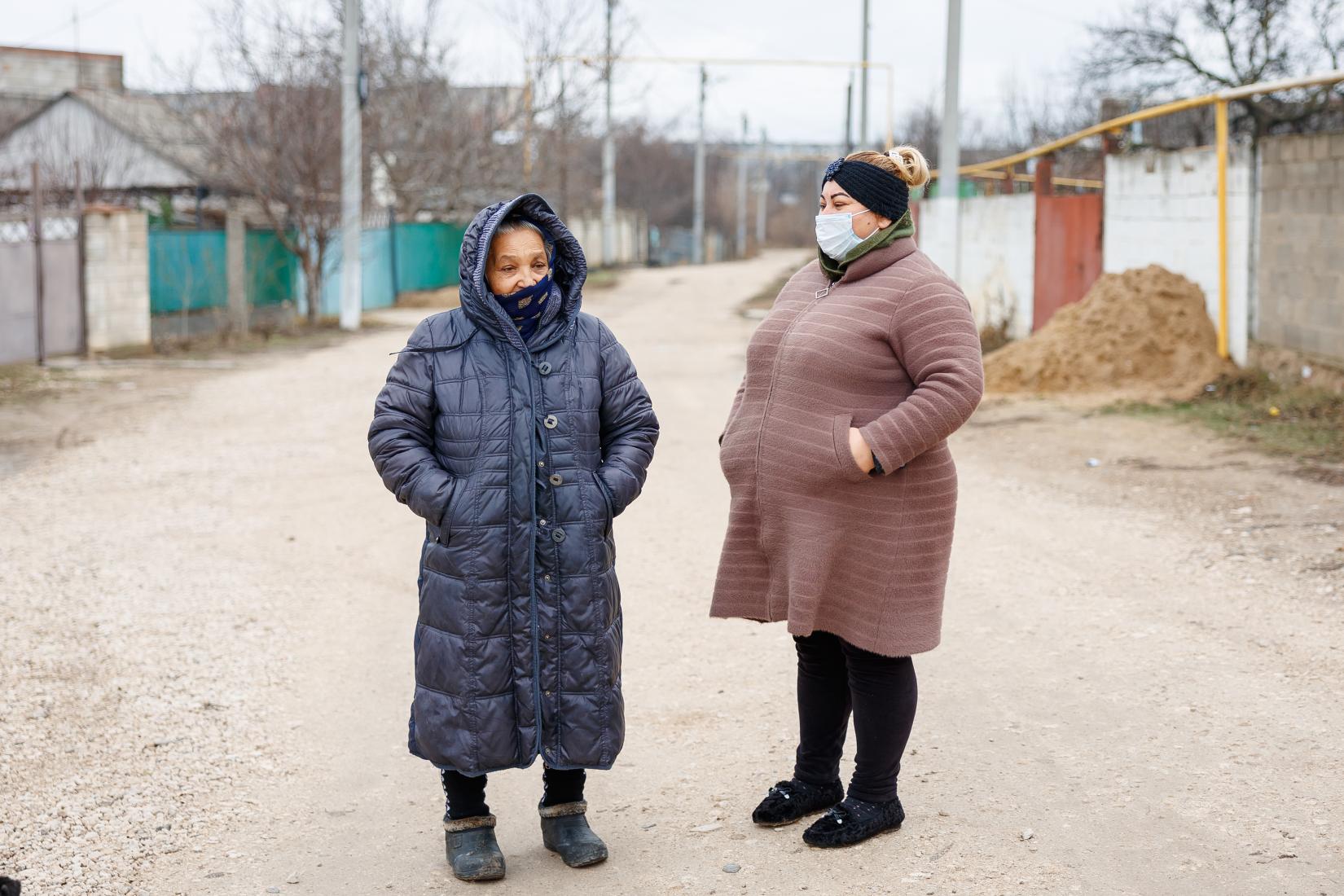My job is to assist Roma families exercise their human rights!

Roma community mediator’s institution is considered to be the most effective tool in Europe for promoting Roma inclusion and their integration in society.
The UN Human Rights Office in Moldova (OHCHR), under the One UN Joint Action "Cross-river support to Human Rights" funded by Sweden, has undertaken the mission of establishing and strengthening the Roma community mediators institution on the left bank of Nistru river, using the model and experience of the right bank institution, and guided by international best practices. For several years now, OHCHR has been actively collaborating with Roma civil society organisations on both banks of the Nistru river, conducting dozens of trainings and information activities on human rights, creating conditions for empowering Roma and ensuring their unimpeded access to education, labour market, social protection, health services and documentation.
Roma community mediator’s institution is considered to be the most effective tool in Europe for promoting Roma inclusion and their integration in society. It is also a practical solution to address and reduce inequalities and systemic discrimination faced by Roma in all areas of life. The network of facilitators/mediators on the right bank of the Nistru river, established in 2004, has been proven to be successful and effective. The results are tangible in the fields of education, health care, and social protection. For example, the number of identity documents obtained by Roma, and the number of Roma children who attend school and pre-school institutions in the locations where Roma community mediators increased.
What do community mediators do and how has their work had an impact on the quality of life of those whom they have already assisted? We found out by talking to Serghei Railean and Inga Gonciaruc - Roma community mediators from the left bank of the Nistru river.
The experience of the Roma community mediator in the village of Novaya Andriyashevka
September 2021 Serghei Railean, became the first Roma community mediator in the village of Novaya Andriyashevka of Slobozia district. Serghei Railean shares his contribution.
"I became a mediator last September. I learned about the Roma mediators’ institution a few years ago, during human rights trainings organised by the UN Human Rights Office in Moldova. I really wanted to assist my community from Novaya Andriyashevka, so I participated in various events, workshops and seminars, underwent trainings and absorbed new things. And when a competition for the position of the mediator was announced, I decided to take part and was selected. Now I try to solve all the issues faced by our Roma community.
My work mainly consists of providing assistance to vulnerable families - getting firewood for those who don't have it, assisting children who don't attend school now to enrol to it by talking to their parents, finding out what the reason of not attending is. I also help our Roma with guardianship, pension and identity documents. Access to health services depends to a certain extent on awareness of the population. To this end, I talk to families so that Roma can make full use of health services. In other words, I assist our Roma families to exercise their human rights.

Roma face different issues, from providing firewood to dealing with different documents. Often the issues faced exceed the mediator’s area of competence. For example, there were conflicts in the community, and even one case of a young man being robbed, who came to me for advice. In such cases, I recommend contacting the law enforcement authorities. The law is the same for everyone. When it was necessary to solve the issue of street lighting or school repair, I went to the local administration. I kept reminding them, telling them how the current situation was negatively affecting the children, their ability to go to school. And that's how they responded to us. Now the school is being repaired, as well as the several village streets are being fixed," said Serghei.
"During these six months, the village witnessed some positive changes. More Roma children attend the school and kindergarten, the school's roof and sanitary facilities were repaired, and vulnerable families received necessary social assistance. I consider that the gradual decrease in the number of Roma who do not have identity and housing registration documents is a very important achievement in my work. At the same time, the number of conflict situations in the community has dropped," says Serghei.

Serghei has a family with three children he is very proud of. He believes education is the key to a better future ensuring all human rights are respected, protected and fulfilled. Therefore, Serghei supports them in their education in every way possible.
The experience of the Roma community mediator in the town of Tiraspol
A significant number of Roma also live in the district called Nakhalovka in the town of Tiraspol. Like Serghei, Inga Gonciaruk has also been working as a Roma community mediator since September 2021 and shares her first successes and experiences.
According to Inga, she has been active in her community for four years prior to working as a Roma community mediator. Inga and her five colleagues on the left bank of Nistru river attended the training program for Roma community mediators as well as a one-year Human Rights Training Program in 2020-2021 organised by the UN Human Rights Office in Moldova. The trainings contributed to her broader understanding of human rights, human rights monitoring and protection mechanisms.
"Our community faces many issues. However, my main focus is education of Roma children and assisting Roma families in having access to basic public services. Lately, especially in the context of the pandemic, I began providing more often counselling over the phone. Since a large part of our community is illiterate, I help with basic issues - how to get a doctor's appointment, how to enrol a child in school. I assist to resolve conflicts between Roma and non-Roma children in schools. In such cases, I talk to the school administration. At the beginning of this school year, being as the Roma mediator, I visited all schools where Roma children from my district are enrolled, introduced myself and proposed to contact me to help address all conflict situations related to Roma. Everyone feels comfortable communicating this way, with a mediator involved," says Inga.
Inga says that in the past, most Roma children do not go to kindergarten and are not prepared for the start of a school year. They do not know any letters or numbers; they study in the same grade for two-three years in a row. In her opinion, the training program for Roma mediators contributed to better understanding the specific role mediators have in the community - in increasing Roma access to the right to education. Thus, in September, Inga had a lot of requests related to education, and school attendance in the online format. She regularly tries to personally check on how Roma children living in her district are studying.
"People also come to me for help with various documentation issues, they do not know how to write an application, which institution to address, they ask me to accompany them to different authorities. Of course, if I can't solve the problem and need special knowledge, I ask for a professional legal expert support," says Inga

Inga Gonciaruk is 39, she has a large family, three sons and recently her granddaughter was born. Besides her work as a mediator, Inga works at the market. At the end of our conversation, she emphasises that the main personal qualities a mediator should have are, first of all, kindness and honesty. If a person does not have these qualities, he or she will never understand people or be able to help them.
Inga also believes that the endeavour of a mediator is to make Roma live a better life and of course, he or she should possess knowledge in the field of human rights. "Roma are often discriminated against, and only with specific knowledge on the principle of non-discrimination can you protect them. I acquired this knowledge at a course on human rights. It is not enough to know your rights - you must be able to exercise them. Helping others understand and exercise their rights is both a quality and mission of the Roma community mediator," Inga says proudly.
UN support to the network of community mediators
"The reasons for marginalisation of Roma are complex. It is caused by severe discrimination in all areas of life, including housing, education, employment and health care," concluded Bea Ferenci, UN Human Rights Adviser in Moldova. - "In a 2015 UN Resolution, the UN Human Rights Council expressed the concern that Roma continued to be socially and economically marginalised, undermining respect for their human rights, spreading prejudice and hindering their full participation in social and economic life and effective exercise of civil rights where they live. The human rights situation of Roma in Moldova has further deteriorated in recent years, especially in the context of the COVID-19 pandemic crisis, which has further exacerbated their vulnerabilities.
In general, Roma are significantly limited in their access to economic opportunities and basic social goods and services compared to their non-Roma neighbours. Therefore, the network of community mediators, which has already proved successful on the right bank of the Nistru river, needs to be strengthened on both banks of Nistru river. The UN in Moldova promotes inclusive services on the left bank of Nistru river by facilitating close links between local services and local Roma communities via community mediators. We will continue to contribute to building the capacity of Roma community mediators on both banks of the Nistru river so that every child receives quality education, and every Roma can live, work and develop fully like everyone else".
This story can be read in Russian language here.




